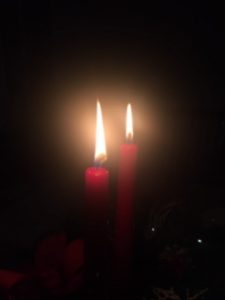Winter Solstice

December 21st, I was inclined to make a fire in our fire pit. Then I learned that we were to attend a holiday party with old friends in another town. The enjoyment of open fire, heat emanating from burning wood, the glow of embers, pungent rising smoke into the inky sky, was delayed. Maybe tonight?
Winter solstice, the shortest day of the year, occurred two days ago on the twenty first. The celebration of our dependence upon the sun, and the importance of the seasonal tilt of the earth’s axis to our well being has been recognized by our ancestors for a very long time. The Romans celebrated on December 25th, Sol Invictus, the unconquered sun. On 25 December AD 274, the Roman emperor Aurelian made it an official cult alongside the traditional Roman cults. On the Festival of Dies Natalis Solis Invicti, the Romans made a good time of it. And so do we, on Christmas day. Why waste a perfectly good holiday when everyone is accustomed to gift giving, and partaking as family, as community in festal food and libation?
When I lived in Japan I was taken by the story of Amaterasu ( 天照大神), the sun goddess. The sun goddess is the most sacred of all Shinto deities. The name means ‘that which illuminates heaven.’
Like all of our gods, the Sun Goddess of Japanese mythology comes with a patently rocking-ballad, a tale depicting how humans were created that does not conceal the inherent conflict within being, the inescapable friction between competing elements of Reality. I like the tale. I think that it is as good as any other. Check out the tale in Wikipedia.
Why not celebrate during the darkest night, the shortest expanse of daylight? Is this not an assertion of hope, of faith that the life-giving sun will again gift us with warmth, the energy of photo synthesis, and all of Creation will continue, generation to generation?
No time for the bonfire…… I lit a candle.